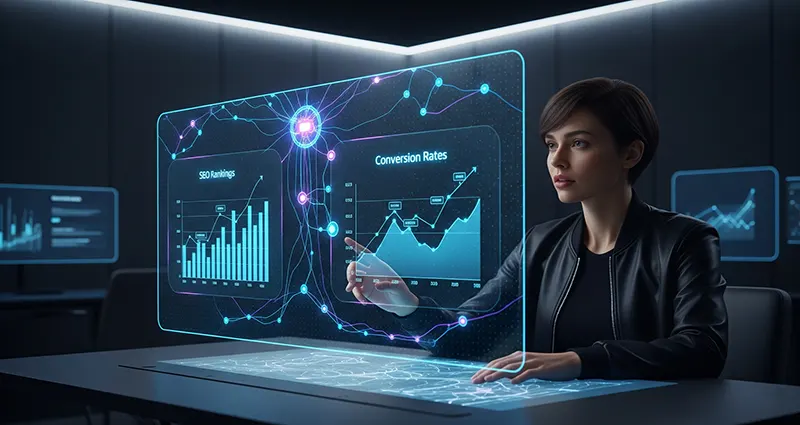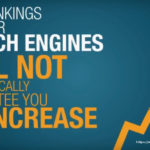Artificial Intelligence (AI) is rapidly transforming the field of web design, playing a pivotal role in enhancing SEO (Search Engine Optimization) and boosting conversion rates. By automating complex tasks, personalizing user experiences, and optimizing content strategies, AI-powered tools are helping businesses achieve significant improvements in their online presence and performance. This article explores some notable case studies of AI in web design that demonstrate tangible benefits for SEO and conversions.
Case Study 1: Wix’s AI-Powered Website Builder
Wix, a leading website builder platform, integrated AI into its web design process through the Wix ADI (Artificial Design Intelligence) system. The AI tool creates customized websites based on user inputs, automatically optimizing page layouts, images, and content for SEO.
- Impact on SEO: Wix ADI incorporates SEO best practices such as proper header usage, meta tags, and mobile responsiveness, helping websites built with the tool achieve better search rankings.
- Drive in Conversions: By providing instantly tailored user experiences, including personalized CTAs (call-to-actions) and simplified navigation, Wix ADI helped users increase conversion rates by up to 20% in some cases.
This showcases how AI can streamline both design and SEO optimization, making the website more discoverable and engaging for visitors.
Case Study 2: HubSpot’s AI-Driven Content Strategy
HubSpot uses AI technology to analyze website visitor behavior and content performance, guiding web designers and marketers to produce SEO-friendly and conversion-optimized content.
- SEO Improvement: HubSpot’s AI identifies keywords and content gaps, recommends topics, and dynamically adjusts on-page SEO elements, leading to a 30% increase in organic traffic for companies using its tools.
- Conversion Enhancement: The platform’s AI-powered personalization engine customizes landing pages and CTAs based on visitor profiles, resulting in up to a 40% lift in conversion rates for some businesses.
By leveraging AI insights, companies gain actionable data to refine their web design and content strategies efficiently.
Case Study 3: The Grid – AI-Designed Websites
The Grid was one of the first web design platforms to use AI for automatically creating and adjusting websites. Its AI system, Molly, designs site layouts, selects colors, fonts, and images, and optimizes pages for visitor engagement.
- SEO Benefits: Molly automatically optimizes websites by generating clean code and performing SEO-friendly structuring, which helped websites built on The Grid achieve higher indexing rates.
- Conversion Results: The AI constantly learns from visitor interactions and adjusts design elements in real-time, improving the user journey and increasing user retention and conversions by up to 15%.
The Grid’s approach highlights the potential of AI to not just create websites but continuously improve SEO and user interaction through adaptive design.
Case Study 4: Adobe Sensei – AI Enhancing Creative Web Design
Adobe Sensei uses AI and machine learning integrated into Adobe’s Creative Cloud platform to automate image selection, enhance content creation, and optimize digital experiences.
- SEO Impact: By analyzing visual content and suggesting image tags and alt text automatically, Adobe Sensei aids in improving visual SEO, driving more traffic through image searches.
- Conversion Improvement: Sensei’s AI helps tailor web designs and marketing content to specific audience segments, making websites more engaging and thereby increasing conversion rates for clients by significant margins.
This case underlines the value AI brings to both the creative and technical sides of web design, directly influencing SEO and conversion outcomes.
These case studies reveal that AI in web design is more than a futuristic concept; it is a practical tool delivering measurable improvements in SEO and conversions. From AI-assisted website builders and smart content strategies to adaptive design and creative automation, businesses leveraging AI technologies are gaining competitive advantages online. Incorporating AI into your web design process can be a crucial step toward building a successful website that attracts organic traffic and converts visitors into customers effectively.









